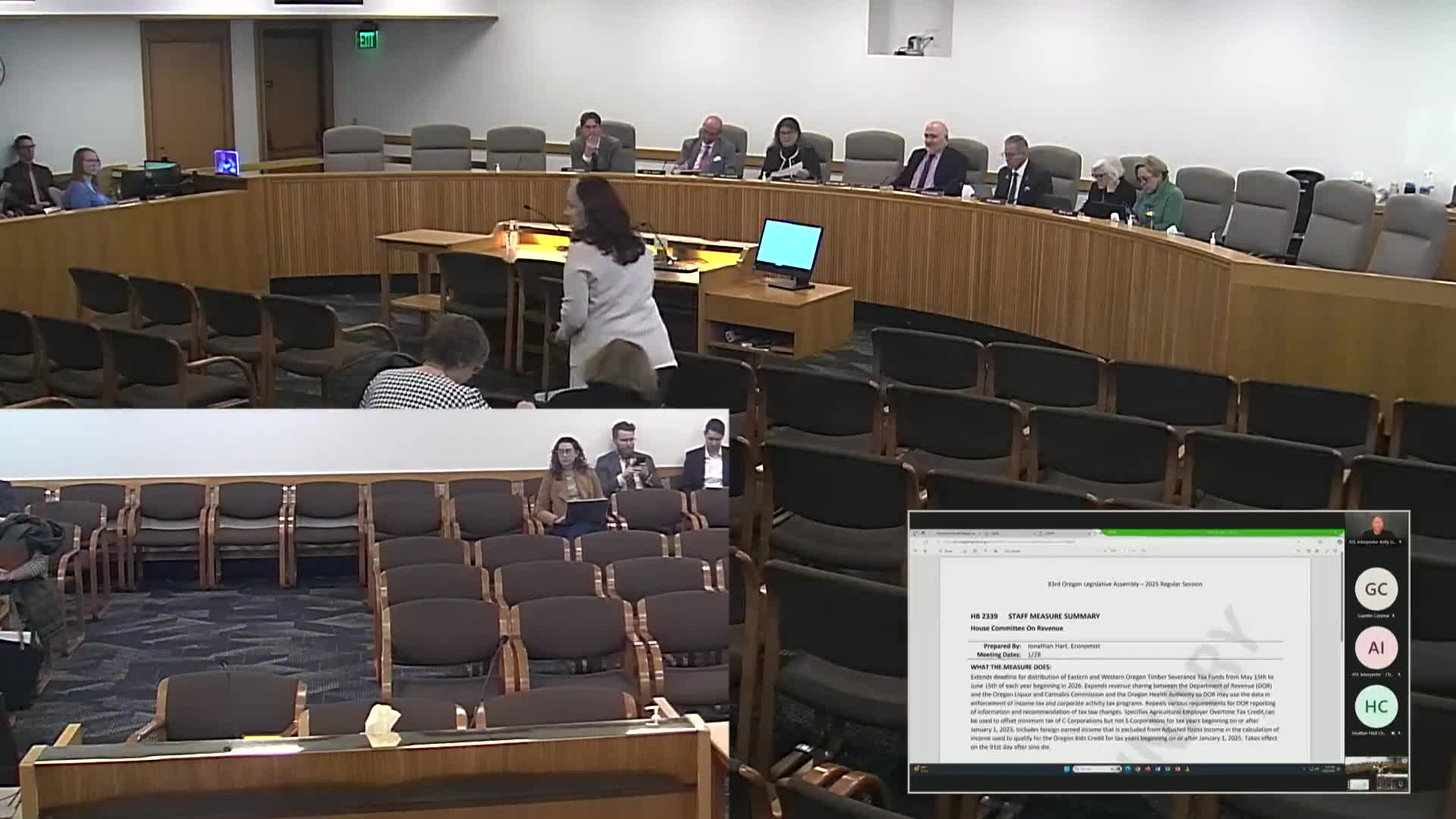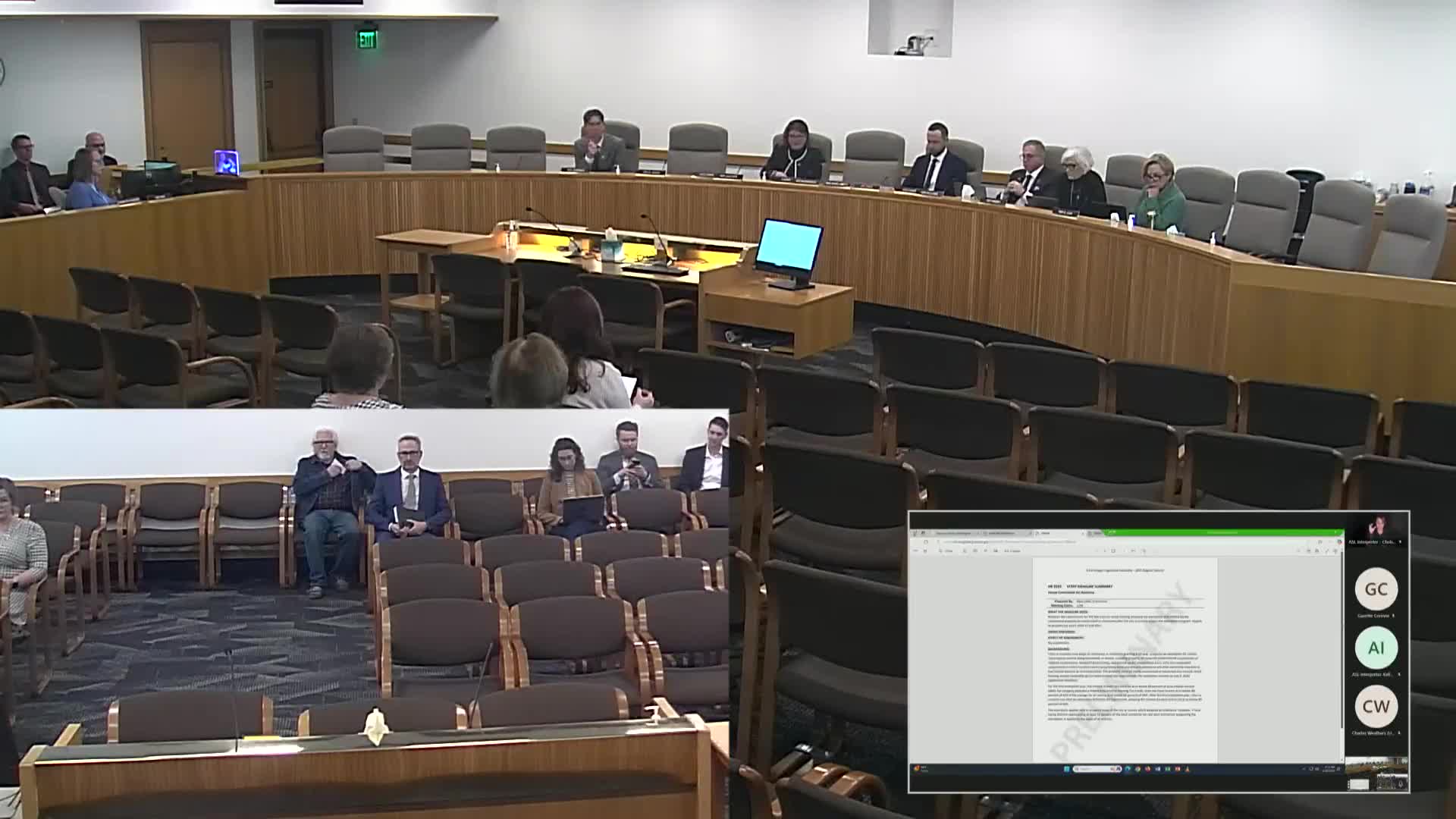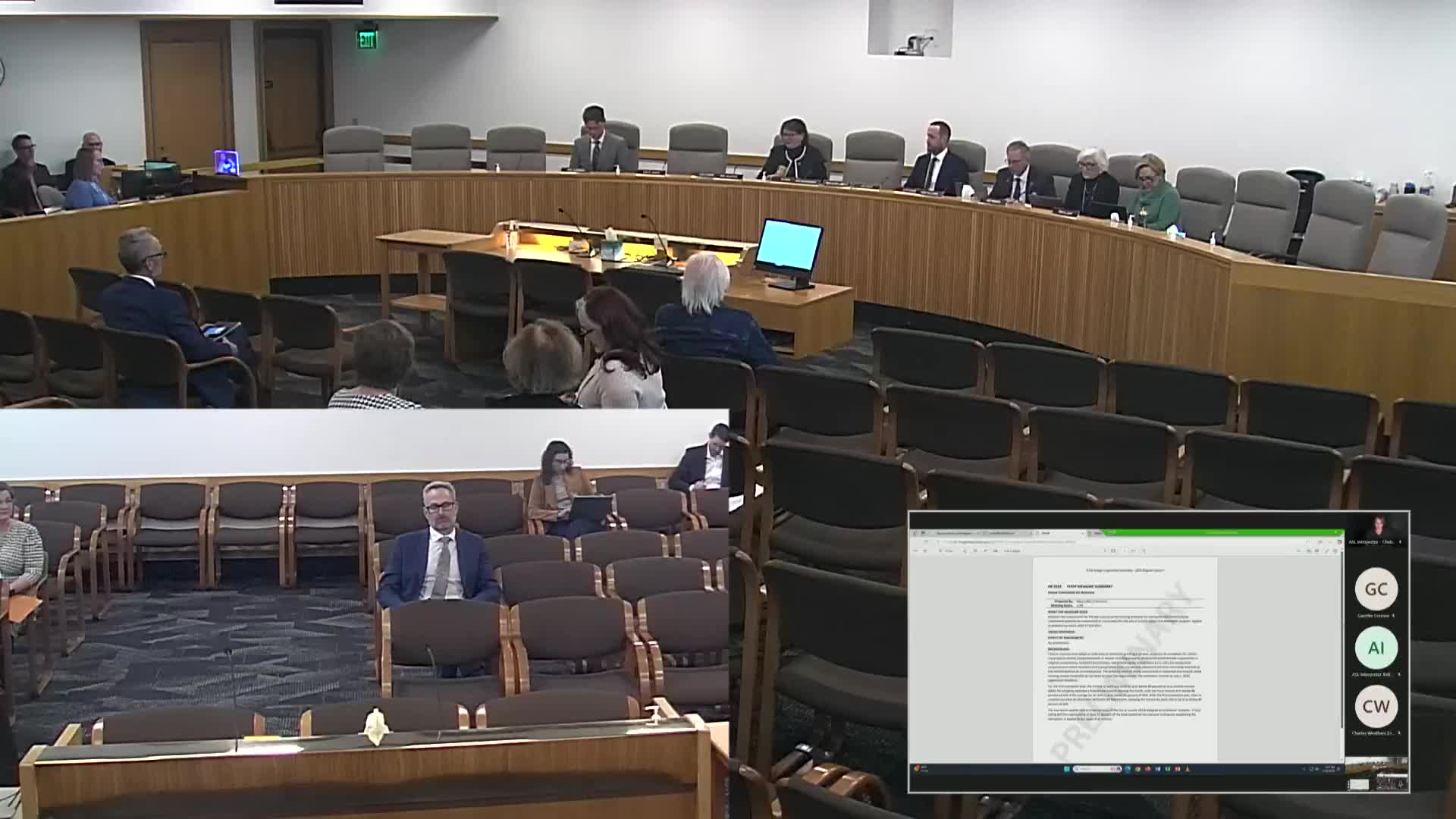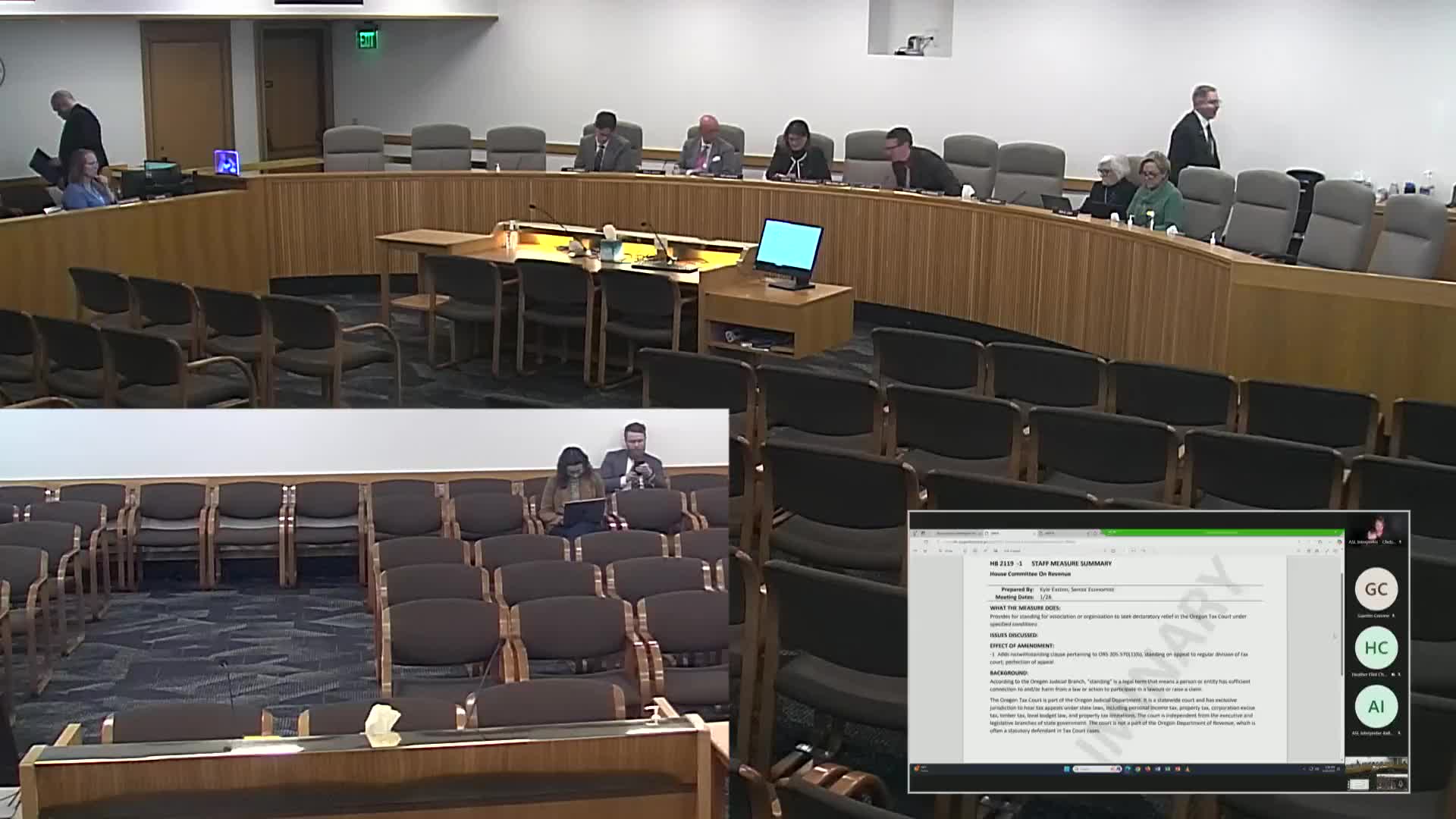Article not found
This article is no longer available. But don't worry—we've gathered other articles that discuss the same topic.

Department of Revenue presents technical omnibus bill; staff outline modest policy and administrative changes

Supporters urge reauthorization of historic-property special assessment limited to commercial buildings

Committee hears bill to extend property tax exemption to preexisting limited-equity housing co-ops

